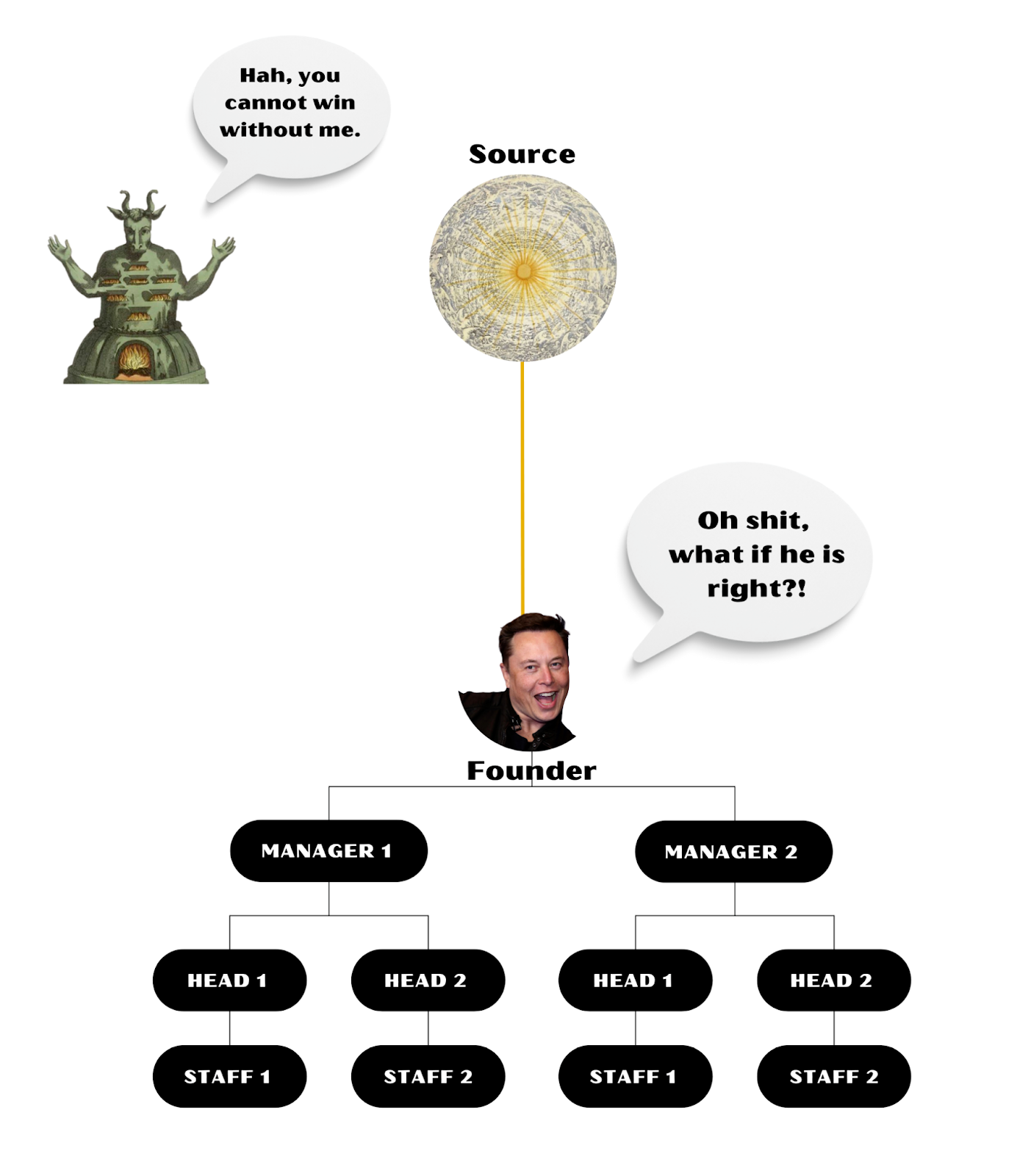I briefly served as a “Philosopher-in-Residence” at Daylight Computers this summer. In that position, we envisioned what a “Chief Philosophy Officer” (CPO) could look like. I initially proposed the following three duties:
Holding space for the CEO by engaging in weekly philosophical inquiries about what is most bothersome to them, whether professionally or personally. Unexamined personal issues can bleed into the professional realm and vice versa, so restricting discussions to only business-related topics is shortsighted.
Ensuring corporate materials are propositionally coherent, as many internal and external documents often use muddled language and are not always definitionally consistent or logically sound.
Stewarding the collective wisdom of the team by leveraging various intersubjective conversational practices, and implementing Stoa-like sessions in place of unproductive meetings that people begrudgingly attend.
During the residency, it became clear to me that the CPO should not report to the CEO and must remain outside of the executive function, operating instead in an in-house counsel capacity. The other theoretical developments related to the CPO involved the concepts of “Source” and “Moloch.”
Source: The deepest place of creative knowing that inspires an initiative. Swiss economist Peter Koenig uses the term to describe the individual responsible for the creative spirit behind an initiative, which could include a business.1
Moloch: The Canaanite god of child sacrifice. Rationalist Scott Alexander uses the term "Moloch" as a metaphor to describe how the choices made by rational individuals, when influenced by systemic incentives, lead to suboptimal results and the sacrifice of collective well-being.2
The first term is used in “spiritual” circles, and the latter one in business circles, particularly in Silicon Valley. As
from The Leading Edge—a group of high-agency individuals responding to the metacrisis—recently told me, being spiritual and doing business will become inseparable. These two worlds have been at odds, and I see the CPO role as someone who bridges the gap between them.The idea is that the founder starts off connected to Source, with creativity flowing, but eventually faces the risk of being captured by the profit motive, competitive pressures, and perverse incentives that will bend them out of integrity. In essence, where Source enlivens, Moloch is near.
A threshold is reached when the founder starts “winning,” loses connection to Source, and fully becomes subservient to Moloch.
The role of the CPO is to prevent this capture from occurring or to liberate the founder when it does, and help keep them connected to Source.
The CPO provides spiritual protection from Moloch, aligning the founder with the good, the true, and the beautiful. It’s essential that the CPO doesn’t function solely within the executive function but maintains a strong relationship with it. The CPO cannot report to the CEO, because if they do, they’ll eventually report to Moloch. Instead, the CPO reports directly to Source, while staying connected to the executive function through the CEO.
Much of this remains theoretical, with some practical experience on my end through Daylight Computers. I believe we need to continue theorizing about this in a way that leads to more practice. If Jonas Salk’s mantra of “survival of the wisest” holds true—which I believe it will—then those who take the risk of being wise will be the ones who survive, and “win,” in the most meaningful way.
If you have any questions, insights, feedback, or criticism on this entry or more generally, message me below (I read and respond on Saturdays) …
“Sources activate the incredible human ability to imagine a future which does not yet exist and then manifest it in reality – what I refer to in this book as creativity. Sources don’t simply follow the industrial-age script of earning their living; they don’t simply attempt to make their inevitably uncertain, mortal life more secure. Nor do they cling to a hope that at some point in the future they’ll have the money to allow themselves to feel fully alive. They are fully alive, and fully creative, right now – and loving it.” - Tom Nixon, Work With Source
Scott Alexander tends to view Moloch more as a “hyperobject,” but in light of the explorations we're conducting through The Entity Pill series at The Stoa, seeing Moloch as an “entity” or “egregore” could provide valuable alchemical insights.







